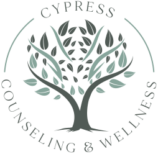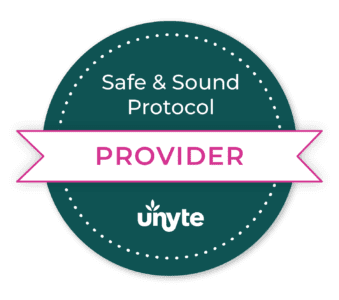Impulse Control Disorders
Impulse control disorders can feel like being caught in a powerful current—you know where you want to go, but something pulls you in another direction, often against your best intentions. These conditions can involve a range of behaviors, from explosive anger to compulsive actions like hair-pulling, skin-picking, or gambling. They can leave you feeling out of control, frustrated, and isolated, especially when the people around you don’t understand why you can’t just “stop.” At Cypress Counseling & Wellness, we understand the complexities of impulse control disorders and are here to help you develop the tools and support needed to regain a sense of agency over your actions.
Understanding Impulse Control Disorders
Impulse control disorders encompass a range of conditions that make it difficult for an individual to resist urges or impulses that may be harmful to themselves or others. These disorders include conditions like Intermittent Explosive Disorder (IED), Kleptomania, Trichotillomania, Dermatillomania, and Pyromania, as well as behavioral addictions like gambling. For those struggling, it’s not about a lack of willpower or discipline—these behaviors are driven by intense urges that are difficult to resist, often providing a temporary sense of relief or satisfaction followed by guilt or regret.
The impact of these disorders can be far-reaching. They can affect relationships, lead to financial or legal problems, and significantly impact self-esteem. Many individuals struggle with shame and isolation, feeling misunderstood or judged by those who may view their behavior as a choice rather than as a symptom of an underlying condition. Impulse control disorders are often accompanied by other mental health challenges, such as anxiety, depression, or trauma, which can further complicate the experience.
Our Approach to Treating Impulse Control Disorders
We believe that the key to managing impulse control disorders is understanding the underlying emotional triggers, developing healthier coping mechanisms, and creating an environment that supports change. Our approach is compassionate and personalized, focusing on both the immediate challenges and the underlying factors contributing to the behavior.
Cognitive Behavioral Therapy (CBT): CBT is a cornerstone of our approach to impulse control disorders. It helps individuals recognize the thought patterns that lead to impulsive actions and develop alternative strategies for managing these urges. By challenging unhelpful thoughts and behaviors, and using practical techniques, CBT can help reduce the frequency and intensity of impulsive actions.
Habit Reversal Training (HRT): As part of our CBT approach, HRT focuses on identifying triggers for impulsive behaviors and developing competing responses that are less harmful. This structured approach is particularly effective for behaviors like skin-picking and hair-pulling, helping individuals gain more control over their actions.
Mindfulness-Based Interventions: Impulse control often requires learning to pause and create space between an urge and an action. Mindfulness practices can help individuals become more aware of their urges in the moment and develop the ability to respond in a more deliberate way, rather than reacting automatically.
Emotion Regulation Skills: Many impulsive behaviors are attempts to manage overwhelming emotions. We work on building emotion regulation skills to help individuals cope with intense feelings in healthier ways. This might include learning to identify and name emotions, practicing self-soothing techniques, and developing strategies for tolerating distress without resorting to harmful behaviors.
Exploring Underlying Issues: Impulse control disorders are often tied to deeper emotional or psychological issues, such as past trauma, anxiety, or feelings of inadequacy. We take time to explore these underlying issues, helping clients understand the emotional roots of their behaviors and work through any contributing factors.
Building a Support System: Impulse control can be challenging to manage alone. We help clients identify and build a support system, whether that means involving family members, finding supportive groups, or developing relationships that encourage accountability and understanding.
Personalized Support for Your Journey
We know that impulse control disorders can feel overwhelming, but change is possible. Our approach is tailored to meet your unique needs, focusing on building skills that empower you to take back control of your actions and your life. At Cypress Counseling & Wellness, we are committed to helping you regain a sense of agency, build resilience, and find healthier ways to manage the challenges you face.
Take the Next Step
If you are struggling with an impulse control disorder, you don’t have to face it alone. Cypress Counseling & Wellness is here to provide a supportive and understanding space where you can learn strategies to manage impulses, explore underlying issues, and work towards a more fulfilling life. Reach out to us today to learn more or schedule an appointment. We are here to support you every step of the way.
 (281) 305-9387
(281) 305-9387







